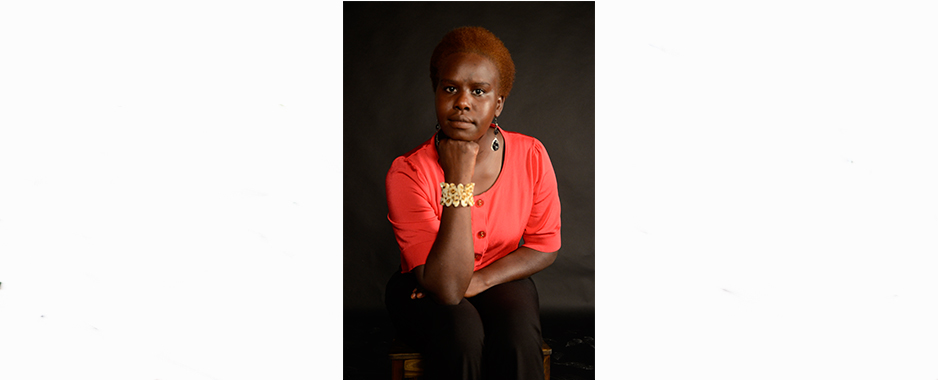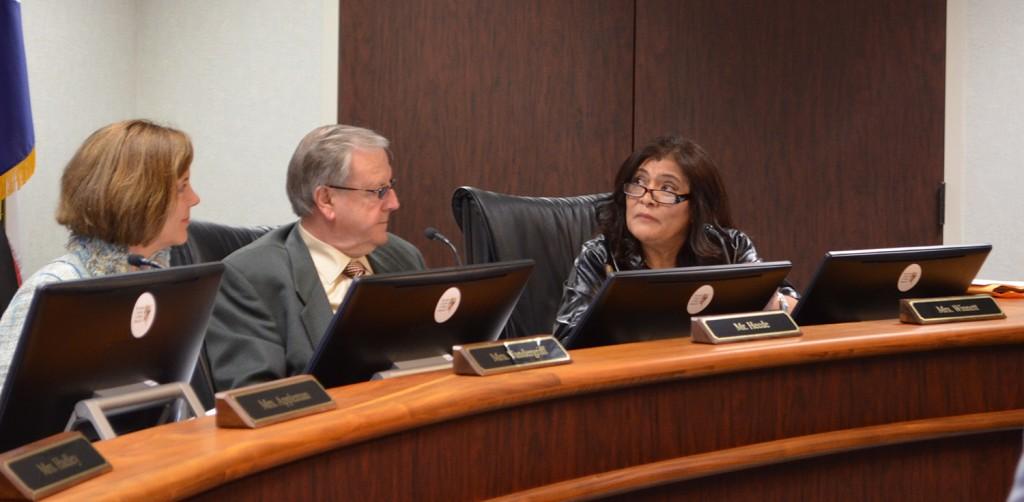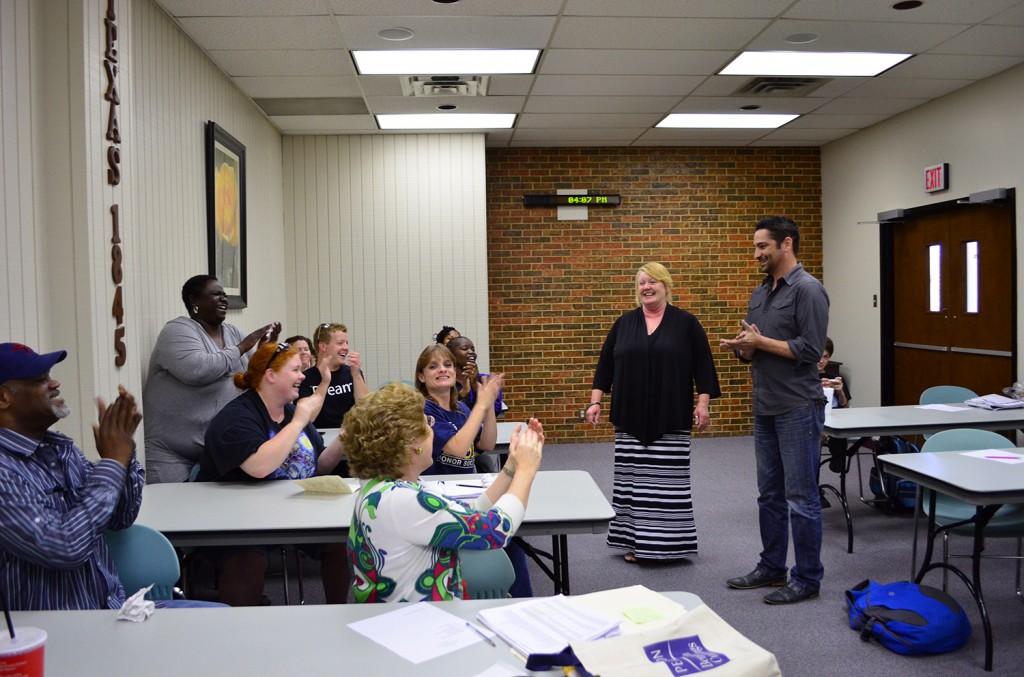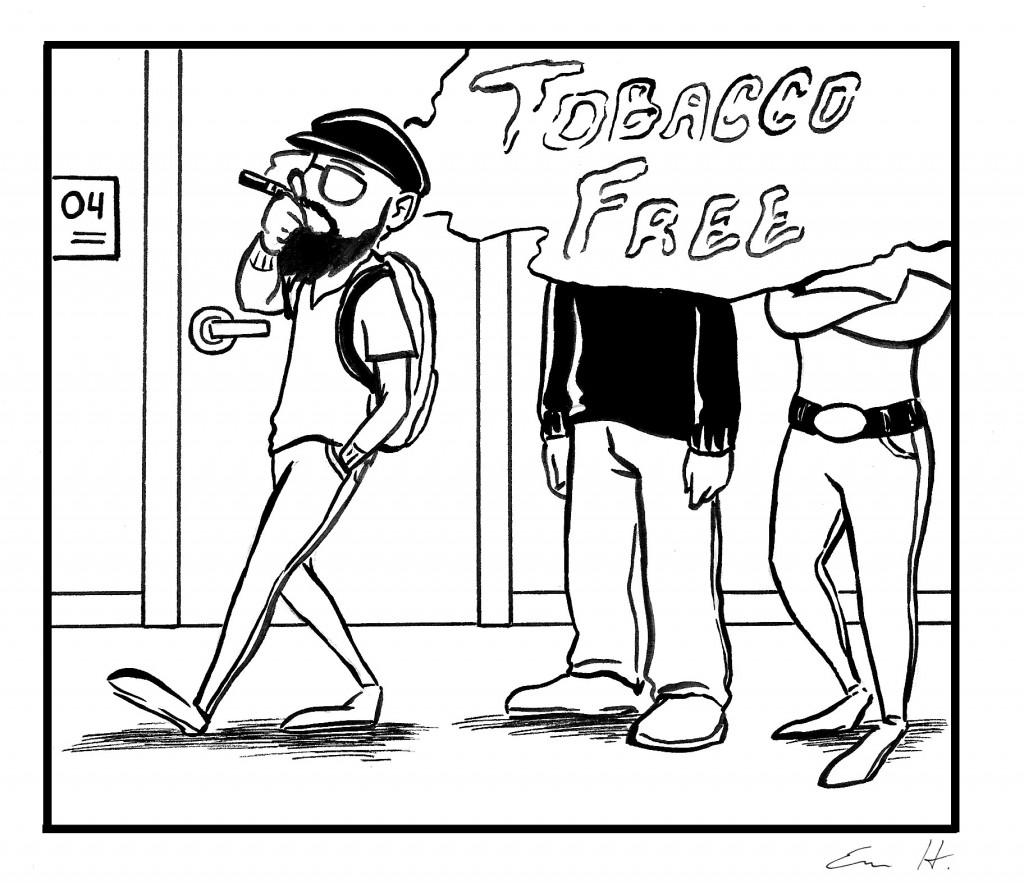By Erin Ratigan/tr news editor
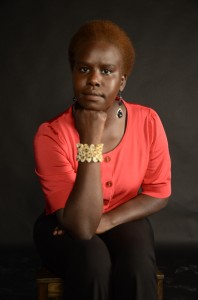
With her sister and three small children by her side, South Campus student Barbara Sullivan was determined to escape her old life.
She took the 51-hour bus ride from Dale City, Va., to Dallas in 1998. That, she said, was her greatest achievement: She had overcome 20 years of domestic violence.
Sullivan said her husband was not always abusive. At first, he was kind to her.
Things changed, she said, after she “lost him to the streets.”
“I lost him to drugs,” she said. “He wasn’t always like that.”
As time went on, he began to psychologically abuse her, calling her fat in public and comparing her body to those of other women.
It was after he became physically violent that she began to seek legal assistance.
On one of these occasions, he was so angry he pushed her down a flight of stairs. She was pregnant with twins at the time. Both children were lost.
Another outburst occurred, she said, when he disapproved of how she had prepared his dinner.
“He had thrown a skillet at my back,” she said. “He was in [jail] for three months, and then he was out.”
Once he was out, she said, he was back “with a vengeance.” It was then she knew she had to leave.
Sullivan is one of several students who overcame adversity to pursue her education. After struggling with self-doubt, she joined the Women in New Roles program on South Campus, which helps women realize their academic potential.
Once they arrived in Dallas, she and her children lived for three months at a battered women’s shelter. After that, they moved to a nearby mission, an experience she said she would never want to repeat.
“I wouldn’t even send my enemy [there],” she said. “I don’t think shelters are for anyone.”
After all she had been through, what she most wanted to do, she said, was to give back to her community. She now does that by running her own day care service.
She said she was inspired to start her business after years of watching children enter shelters. She wanted to find a way to help women despite their economic status.
“I love children, and I wanted to give back,” she said. “I do help a lot of parents, even those who can’t pay me.”
In January, she enrolled in WINR.
Since 1978, WINR has helped women reach their goals of returning to school.
Among the courses offered to students are specialized psychology courses, which address obstacles to success and feelings of self-worth. Students are also given peer-to-peer mentoring, career advisement and guided instruction on resume building and interviewing.
The program was nominated for the Texas Higher Education STAR Award in 2013. That same year, the Office of Institutional Research, Planning and Development projected women made up 56 percent of TCC students enrolled districtwide.
“I think every woman should go be in that program,” Sullivan said. “I think they should make it mandatory.”
South psychology associate professor Triesha Light has been the program’s coordinator since 1988. She said female empowerment and confidence have been lacking in society since the ’70s, a decade termed “the Era of the Trophy Wife.”
“You learn that this program is still very relevant even though they only started it in 1978,” Light said. “Those questions that motivated [founder] Emily [Lunday Garret] to start the program are still out there.”
Sullivan, who turns 52 in May, returned to school to build on her passion for writing.
“I came back to school, so I could actually learn to be a producer or a film writer. Just to tell a story,” she said. “Good or bad, everybody has a story.”
Sullivan is also a published author. Her first romance novel, Deep Dark Secrets with a Twist, was published in 2011.
“I’m not a quitter,” she said. “That’s one thing about me. I don’t quit.”
South nursing student Christina Otorino also joined WINR this semester. At the age of 13, Otorino came to the U.S. from Sudan in 1999 with her aunt and two older brothers. Having only received a kindergarten education, she not only wanted a better life but to go to school as well.
She said this was because education was not a priority in Sudan.
“Over there, they don’t care if you go to school,” she said. “I started school once I came to the U.S.”
Growing up, she said living conditions were poor. She did not have “proper clothing or shoes,” and she said her childhood was all work and no play.
”I didn’t have a good childhood,” she said. “I went from home to home baby-sitting kids.”
Then at 19, she became pregnant. The father, she said, did not want to get involved.
With a baby on the way and with no support from her family, Otorino said she started to lose faith in herself.
“Raising my first son was very hard,” she said. “I always thought, ‘This is it. I don’t have anything else.’”
It was after the birth of her second child that she decided to take charge of her life.
“When I had my second [child], I started seeing life differently,” she said. “I thought, ‘Why would I have to just sit here and have children rather than going to school?’”
As her children grow up, she said she wants them to learn from her story and understand the importance of not giving up.
After graduation, Otorino said she intends to return to Sudan.
“If I become a nurse, I’m not seeking money … I want to help them,” she said. “I will go there, hopefully, to open a hospital or a clinic for my people.”
When talking about her experiences with WINR, Otorino couldn’t help but cry. She said those who feel lost can find support in it.
“[Light is] a person you would go out and drink coffee with,” she said, her voice catching in her throat. “She’s very good.”
Light said WINR helps students enter the workforce as well as advance their education.
“I think women adapt to the work environment well once they overcome their initial fear,” she said. “We teach women enrolling in WINR about their many transferable skills.”
While part of the NE Campus nursing program, Karimen Lucero said she heard about WINR and wanted to join.
“I just wanted direction and more understanding of myself,” she said, “and whether I was on the right track for my career.”
She said she was also looking for a support group to help her overcome her traumatic childhood.
“[I had] to grow up at a very young age,” she said.
In 2000, Lucero was sexually assaulted by her stepfather. She was 8 years old at the time.
This continued until she was 14 when she found out she was pregnant. Her family did not know about the attacks until she was 15 and had already given birth.
During a family argument, the police were called to intervene. When questioned by an officer, Lucero explained what had happened to her and who her son’s father was. Her stepfather was then arrested, and trial proceedings began.
In 2005, after DNA testing confirmed her story, he was given two sentences of 75 years in prison.
She is now 22. Her son is 8.
“I sometimes just want to be a child,” she said. “I slack off in my responsibilities because I want to be young, but I have to be responsible, and it is emotionally draining at times.”
She said her experiences have taken a toll not only on her self-confidence but also on her relationships with other men.
“I’ve had some friends, and I’ve dated,” she said, “but they haven’t been the healthiest relationships.”
What she wants, she said, is a relationship free of drama.
“I want to be more open and just enjoy the relationships more,” she said, “instead of being so serious all the time.”
WINR students are given career and personal counseling, but while her time in the program has helped her, Lucero said she does not feel completely healed.
“In some areas, I think I need more support,” she said. “I probably need to be more open.”
Still, she said she is slowly becoming stronger, and the road to recovery is a long one.
Despite the differences in their stories, Sullivan, Otorino and Lucero have something in common: They took charge of their lives by returning to school.
While she does not tell her story to many, Lucero said she hopes those with similar experiences can learn from hers.
“Maybe sharing a little bit of my story might help people,” she said. “The advice I would give is to seek help and support and to talk about it.”






















